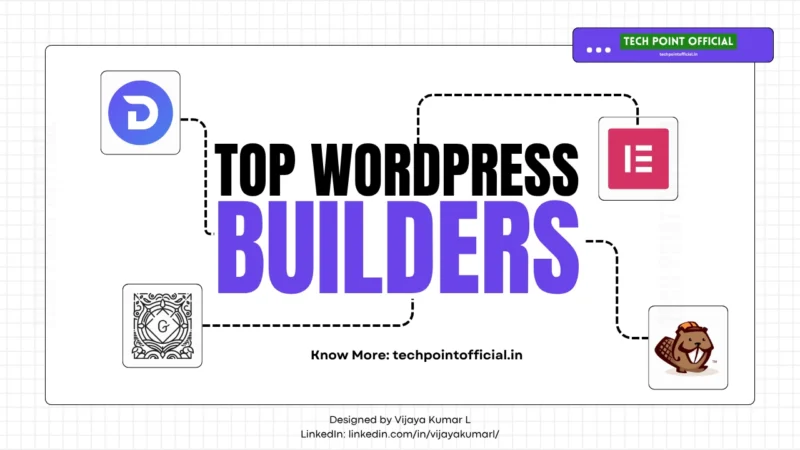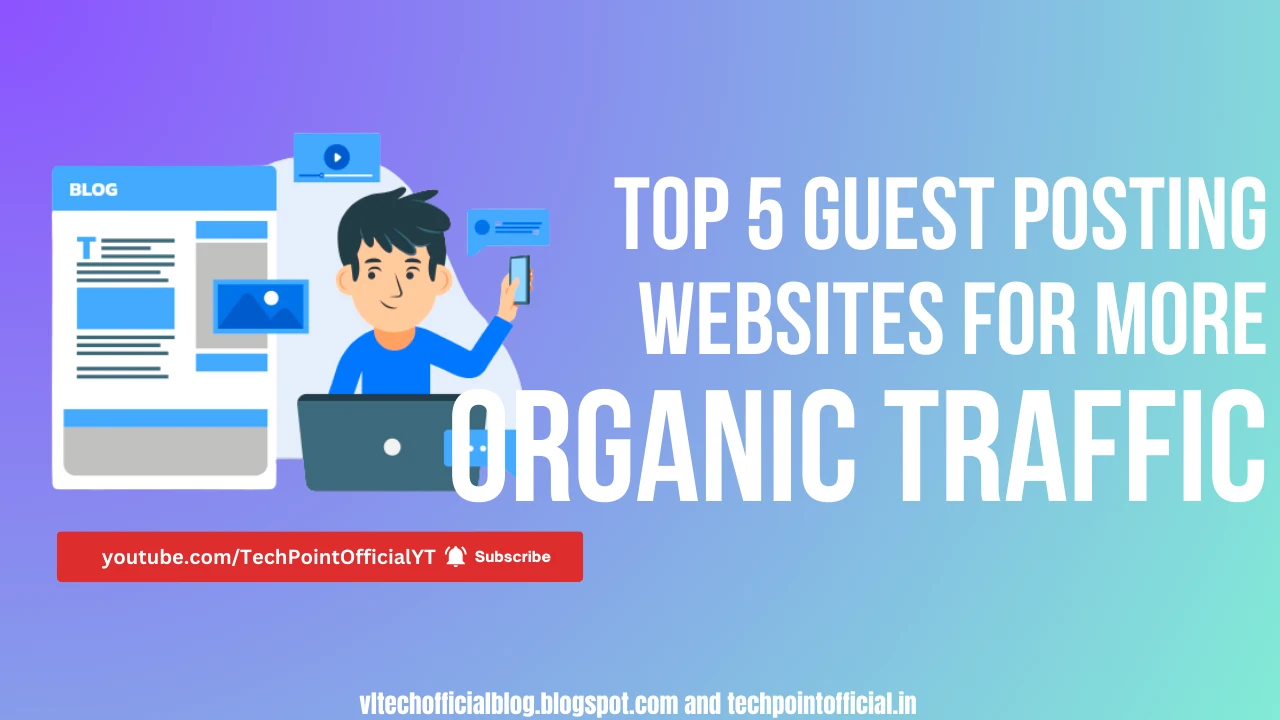Table of Contents Hide
- What Makes a WordPress Builder Essential?
- Key Features to Look for in WordPress Builders
- Top WordPress Builders Compared
- Ready to experience the power of Elementor?
- Want clean, reliable code for your WordPress site?
- Transform your website with Divi's all-in-one solution!
- Maximize your WordPress potential with Gutenberg!
- Making the Right Choice for Your Needs
- Performance Optimization Tips
- Security Considerations
- Cost Analysis and Value Assessment
- Future-Proofing Your Choice
- Conclusion
- Frequently Asked Questions FAQ
- If you found this guide helpful,
Building a professional website has never been more accessible, thanks to the evolution of WordPress page builders. Whether you’re a beginner looking to create your first site or an experienced developer seeking efficiency, selecting the right WordPress builder can make or break your web development experience.
In this comprehensive guide, we’ll explore the top WordPress builders available today, helping you make an informed decision that aligns with your specific needs and budget.
What Makes a WordPress Builder Essential?
WordPress builders have revolutionized web development by eliminating the need for extensive coding knowledge. These powerful tools provide drag-and-drop functionality, pre-designed templates, and intuitive interfaces that streamline the website creation process.
The best WordPress builder should offer flexibility, performance optimization, and seamless integration with your existing WordPress setup. Modern builders have evolved beyond simple page creation tools to become comprehensive website development platforms.
Key Features to Look for in WordPress Builders
Visual Editing Capabilities
A superior WordPress builder provides real-time visual editing, allowing you to see changes as you make them. This feature eliminates guesswork and speeds up the design process significantly.
Template Library Quality
Look for builders offering extensive template collections with modern, responsive designs. Quality templates serve as excellent starting points and can dramatically reduce development time.
Performance Impact
The best WordPress builder maintains site speed while providing rich functionality. Avoid builders that significantly slow down your website, as this affects user experience and search engine rankings.
Integration Compatibility
Choose builders that integrate seamlessly with popular WordPress plugins, themes, and third-party services. This ensures your website remains functional and expandable.
Top WordPress Builders Compared
Elementor: The Market Leader
Elementor stands out as one of the most popular choices among WordPress users. Its free version provides substantial functionality, while the Pro version unlocks advanced features like custom CSS, marketing integrations, and premium widgets.
Strengths:
- Extensive widget library
- Active community support
- Regular updates and improvements
- WooCommerce integration
Considerations:
- Can impact site speed if overused
- Learning curve for advanced features
Ready to experience the power of Elementor?
Download the free version today and start building stunning websites with the world's most popular WordPress page builder. With over 40 free widgets and hundreds of templates, you can create professional sites in minutes.
Beaver Builder: Reliability Focused
Beaver Builder emphasizes clean code and reliable performance. This builder appeals to developers who prioritize code quality and long-term stability over flashy features.
Strengths:
- Clean, semantic code output
- Excellent customer support
- Developer-friendly hooks and filters
- Stable performance
Considerations:
- Smaller template library
- Higher price point
Want clean, reliable code for your WordPress site?
Try Beaver Builder's developer-friendly approach with their 30-day money-back guarantee. Experience the difference of semantic HTML and lightning-fast performance.
Start Your Beaver Builder TrialDivi Builder: All-in-One Solution
Divi combines a page builder with a complete theme framework, offering users a comprehensive website creation solution. The visual builder works both on the frontend and backend.
Strengths:
- Comprehensive design system
- Built-in split testing
- Global elements and styles
- Extensive customization options
Considerations:
- Steeper learning curve
- Theme dependency
Transform your website with Divi's all-in-one solution!
Join over 800,000 customers using Divi's comprehensive design system. Get access to hundreds of layouts, built-in split testing, and lifetime updates.
Unlock Divi TodayGutenberg: WordPress Native Builder
As WordPress’s default block editor, Gutenberg continues evolving into a capable page builder. Its native integration ensures optimal compatibility and performance.
Strengths:
- No additional plugins required
- Seamless WordPress integration
- Constantly improving features
- No licensing costs
Considerations:
- Limited advanced features
- Fewer design option
Maximize your WordPress potential with Gutenberg!
Since it's already built into WordPress, start exploring advanced blocks and patterns right now. Discover how the native editor can handle your design needs without additional plugins.
Explore Gutenberg BlocksMaking the Right Choice for Your Needs
For Beginners
New WordPress users benefit most from builders with extensive documentation, video tutorials, and active community support. Elementor and Divi excel in this area, offering comprehensive learning resources.
For Developers
Developers typically prefer builders that don’t interfere with custom code and maintain clean output. Beaver Builder and advanced Gutenberg blocks serve these requirements well.
For E-commerce Sites
Online stores require builders with robust WooCommerce integration and performance optimization. Consider how each builder handles product pages, checkout processes, and mobile responsiveness.
For Content-Heavy Sites
Blogs and content sites need builders that don’t slow down page loading and work well with SEO plugins. Test how different builders affect your site’s Core Web Vitals scores.
Performance Optimization Tips
Choose Lightweight Options
Select builders known for generating clean, minimal code. Avoid loading unnecessary scripts and stylesheets that don’t contribute to your site’s functionality.
Use Caching Effectively
Implement proper caching strategies to minimize the performance impact of page builders. Many builders work well with popular caching plugins when configured correctly.
Optimize Images and Media
Regardless of your chosen builder, optimize all images and media files. Large, unoptimized media files cause more performance issues than most page builders themselves.
Security Considerations
Keep Everything Updated
Regularly update your chosen WordPress builder along with WordPress core and other plugins. Outdated software presents security vulnerabilities that malicious actors can exploit.
Choose Reputable Developers
Select builders from established companies with strong security track records. Research the development team’s background and their approach to security updates.
Implement Proper Backups
Maintain regular backups of your website, especially before making significant changes or updates to your page builder setup.
Cost Analysis and Value Assessment
Free vs Premium Features
Evaluate whether free versions meet your needs or if premium features justify the additional cost. Many builders offer substantial functionality in their free tiers.
Long-term Investment
Consider the total cost of ownership, including annual renewals, add-on purchases, and potential migration costs if you switch builders later.
ROI Calculation
Calculate how much time and money the builder saves compared to custom development or alternative solutions.
Future-Proofing Your Choice
Development Roadmap
Research each builder’s development roadmap and commitment to future updates. Choose builders with active development and clear vision for future improvements.
Community and Ecosystem
Strong communities provide valuable resources, third-party add-ons, and troubleshooting support. Consider the ecosystem surrounding your chosen builder.
Migration Possibilities
Understand how easy it would be to migrate away from your chosen builder if circumstances change. Some builders make it easier to export content than others.
Conclusion
Selecting the best WordPress builder depends on your specific requirements, technical expertise, and long-term goals. Whether you choose Elementor for its extensive features, Beaver Builder for its reliability, Divi for its comprehensive approach, or Gutenberg for its native integration, success depends on how well the tool aligns with your needs.
Take time to test different options, consider your budget constraints, and think about your future requirements. The right WordPress builder will empower you to create stunning, functional websites that serve your audience effectively.
Ready to build your next WordPress site? Share your experiences with different page builders in the comments below, and don’t forget to subscribe for more WordPress tips and tutorials!
Frequently Asked Questions FAQ
Elementor is often considered the best WordPress builder for beginners due to its intuitive drag-and-drop interface, extensive template library, and comprehensive documentation. The free version provides enough functionality for most starter websites, while the learning curve remains manageable for new users.
WordPress page builders are not inherently bad for SEO when used properly. The key is choosing builders that generate clean code and don't significantly impact site speed. Modern builders like Elementor and Beaver Builder have improved their SEO performance considerably and work well with popular SEO plugins.
Switching between WordPress builders is possible but can be challenging depending on the builders involved. Some builders make it easier to export content than others. Gutenberg blocks are generally the most portable, while proprietary builders may require manual recreation of content when switching.
WordPress builders can impact site speed, but the effect varies by builder and implementation. Lightweight builders like Beaver Builder tend to have minimal impact, while feature-rich options like Elementor may slow sites if overused. Proper optimization and caching can mitigate most performance issues.
Premium WordPress builders often provide significant value through advanced features, priority support, and additional templates. Whether it's worth the cost depends on your specific needs, budget, and how much time the premium features save you in development work.
If you found this guide helpful,
share it with aspiring food entrepreneurs and join our community of cloud kitchen owners. Subscribe to our newsletter for the latest industry updates, success stories, and practical tips to grow your food business.
Join Whats App ChannelSubscribe Youtube Channel





